Farm Boy 牧場の少年 from Final Fantasy VII ファイナルファンタジーVII with sheet music
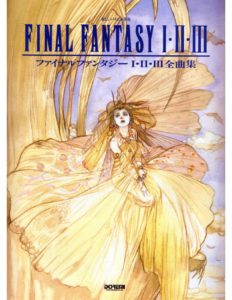
Sheet Music download here.
Music of the Final Fantasy VII series
Final Fantasy VII is a role-playing video game developed by Square (now Square Enix) and published by Sony Computer Entertainment as the seventh installment in the Final Fantasy series. Released in 1997, the game sparked the release of a collection of media centered on the game entitled the Compilation of Final Fantasy VII.
The music of the Final Fantasy VII series includes not only the soundtrack to the original game and its associated albums, but also the soundtracks and music albums released for the other titles in the collection.
The first album produced was Final Fantasy VII Original Soundtrack, a compilation of all the music in the game. It was released as a soundtrack album on four CDs by DigiCube in 1997. A selection of tracks from the album was released in the single-disc Reunion Tracks by DigiCube the same year. Piano Collections Final Fantasy VII, an album featuring piano arrangements of pieces from the soundtrack, was released in 2003 by DigiCube, and Square Enix began reprinting all three albums in 2004. To date, these are the only released albums based on the original game’s soundtrack, and were solely composed by regular series composer Nobuo Uematsu; his role for the majority of subsequent albums has been filled by Masashi Hamauzu and Takeharu Ishimoto.
The Compilation of Final Fantasy VII began eight years after the release of Final Fantasy VII with the release of the animated film sequel Advent Children in 2005. The soundtracks for each of the titles in the collection are included in an album, starting with the album release of the soundtrack to Advent Children that year. The following year, Nippon Crown released a soundtrack album to correspond with the video game Dirge of Cerberus, while Square Enix launched a download-only collection of music from the multiplayer mode of the game, which was only released in Japan. After the launch of the game Crisis Core in 2007, Warner Music Japan produced the title’s soundtrack. The latest album in the collection, Before Crisis: Final Fantasy VII & Last Order: Final Fantasy VII Original Soundtrack, was released by Square Enix the same year as a combined soundtrack album for the game Before Crisis and the animated movie Last Order.
The original music received highly positive reviews from critics, who found many of the tunes to be memorable and noted the emotional intensity of several of the tracks. The reception for the other albums has been mixed, with reactions ranging from enthusiastic praise to disappointment. Several pieces from the soundtrack, particularly “One-Winged Angel” and “Aeris’ Theme”, remain popular and have been performed numerous times in orchestral concert series such as Dear Friends: Music from Final Fantasy and Tour de Japon: Music from Final Fantasy. Music from the Original Soundtrack has been included in arranged albums and compilations by Square as well as outside groups.
Browse in the Library:
| Artist or Composer / Score name | Cover | List of Contents |
|---|---|---|
| Timbaland – Way I Are | ||
| Time (Inception) – Hans Zimmer – Solo Piano (Musescore File).mscz | ||
| Time is like a dream (Interlude OST) Georges Delerue | ||
| Time Travel Theme – Secret (Jay Chou) |
 |
|
| Timothy Brown – Daydreaming |
 |
|
| Timothy Brown – Lyric Expressions Solo Piano |
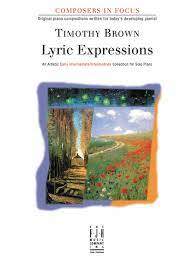 |
|
| Timothy Brown – Soliloquy |
 |
|
| Tina Arena – Burn | ||
| Tina Turner – I, Tina (Book) |
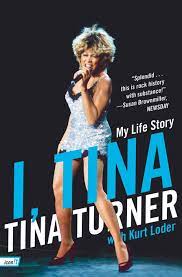 |
|
| Tina Turner – The Best Of Simply The Best Piano Vocal guitar Chords |
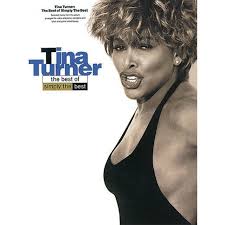 |
Tina Turner – The Best Of Simply The Best Piano Vocal guitar Chords – – 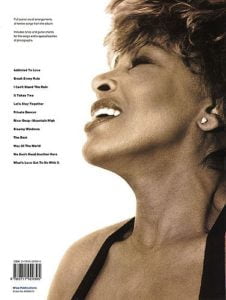 |
| Tina Turner – What’s Love Got To Do With It | Tina Turner – What’s Love Got To Do With It | |
| Tina Turner – What’s Love Got To Do With It.mscz | ||
| Tina Turner Goldeneye (James Bond frilm Theme) |
 |
|
| Titanic – My Heart Will Go On (James Horner) |
 |
|
| Titanic – James Horner Full songbook |
 |
Titanic – James Horner |
| Titanic Movie Theme – My Heart Will Go On – Piano Guitar Vocals | Titanic Movie Theme – My HeArt Will Go On – Piano Guitar Vocals | |
| To Be Pleasing You Jazz Piano Solo arr. sheet music |
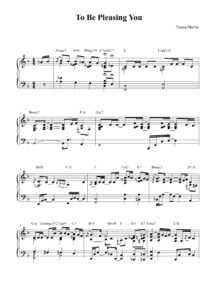 |
|
| To love you more (Celine Dion) | ||
| To Zanarkand Final Fantasy X |
 |
|
| To Zanarkand (Final Fantasy X) (Musescore File).mscz | ||
| TOCH, E. – La Melodía(Spanish) 1923 |
 |
|
| Tom Jobim Girl from Ipanema | Tom Jobim girl from ipanema | |
| Tom Jobim Agua de Beber | Tom Jobim Sheet Music – Agua de Beber | |
| Tom Jobim Desafinado | ||
| Tom Jobim Ligia | ||
| Tom Jobim Samba Verao | ||
| Tom Jobim songbook 1 Guitar (by Almir Chediak) |
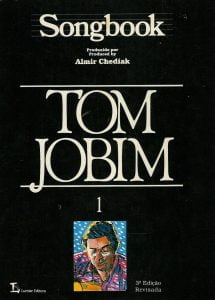 |
Tom Jobim songbook I (Guitar) |
| Tom Jobim songbook 2 Guitar (by Almir Chediak) |
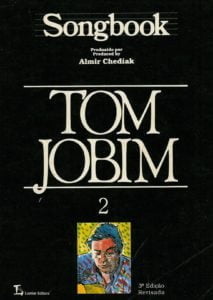 |
Tom Jobim songbook I (Guitar) |
| Tom Jobim songbook 3 Guitar (by Almir Chediak) |
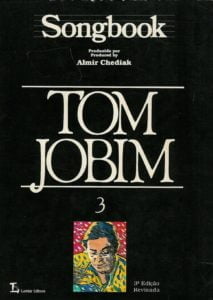 |
Tom Jobim songbook I (Guitar) |
| Tom Jobim Triste | ||
| Tom Jobim Vivo Sonhando | ||
| Tom Jones Greatest Hits |
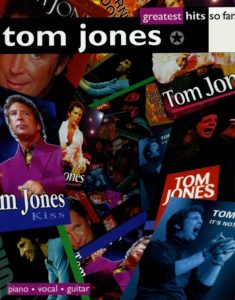 |
Tom Jones Greatest Hits |
| Tom Kolb – Chord Progressions for Guitar (with audio MP3) |
 |
Tom Kolb – Chord Progressions for Guitar (with audio MP3) |
| Tom Odell Another Love |
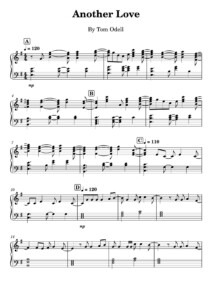 |
|
| Tom Petty Anthology Guitar Anthology Series with TABs |
 |
Anthology Tom Petty Guitar |
| Tom Petty Sheet Music Anthology – Tom Petty |
 |
Tom Petty Sheet Music Anthology – Tom Petty |
| Tom Petty, Best of (Songbook), The – Tom Petty sheet music |
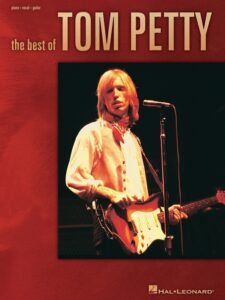 |
Tom Petty, Best of (Songbook), The – Tom Petty sheet music |
| Tom Turpin The Harlem Rag | Tom Turpin Harlem-Rag | |
| Tom Waits -Alice (entire album songbook) Piano-vocal-guitar |
 |
Tom Waits -Alice (entire album songbook) Piano-vocal-guitar |
| Tom Waits Anthology 29 Titres |
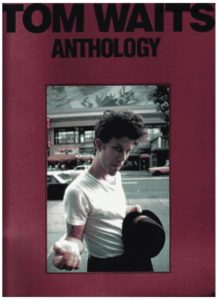 |
Tom Waits Anthology |
| Tom Waits Beautiful Maladies |
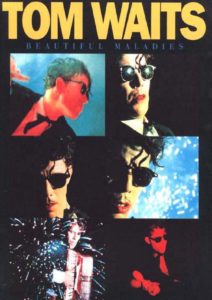 |
Tom Waits Beautiful Maladies |
| Tom Waits Blood Money |
 |
Tom Waits Blood Money |
| Tommy Emmanuel The Mystery Transcriptions Mel Bay Presents Guitar TAB |
 |
Tommy Emmanuel The Mystery Transcriptions Mel Bay Presents Guitar TAB |
| Tommy Flanagan – Moritat Mack The Knife Solo transcription | Tommy Flanagan – Moritat Mack The Knife Solo transcription | |
| Tommy Flanagan Wee Dot sheet music transcription |
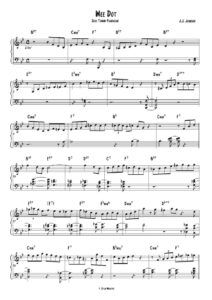 |
|
| Tommy Flint – Best Of Country Guitar Solos with audio MP3 with TABs |
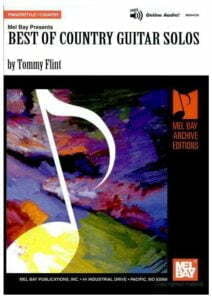 |
Tommy Flint – Best Of Country Guitar Solos with audo content |
| Tommy Shaw – Boat On The River from Styx |
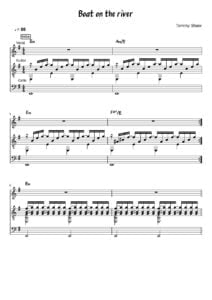 |
|
| Tomorrow (Europe) | ||
| Tomorrow (From Annie) Sheet Music – Charles Strouse |
 |
|
| Tomorrowland Music From The Motion Picture Soundtrack Piano Solo by Michael Giacchini |
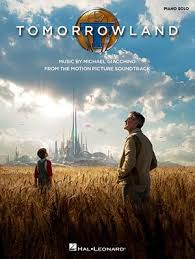 |
Tomorrowland Music From The Motion Picture Soundtrack Piano Solo by Michael Giacchini |
| Tomoya Naka Rainy Song | Tomoya | |
| Tonari no Totoro – My Neighbor Totoro (Joe Hisaishi) |
 |
|
| Toni Braxton – Unbreak My Heart | ||
| Tonight from West Side Story (Leonard Bernstein) Easy Piano Solo arr. sheet music | Tonight from West Side Story (Leonard Bernstein) Easy Piano Solo arr. sheet music | |
| Tonight From West Side Story (Leonard Bernstein) Easy Piano Solo Arr. Sheet Music (Musescore File).mscz | ||
| Tony Alonso Mass Of Joy And Peace For Sab Voices And Accompaniement |
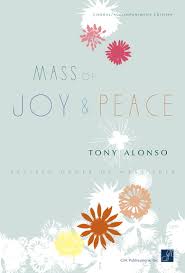 |
|
| Tony Bennett Life Is a Gift The Zen of Tony Bennett (Book) |
 |
|
| Top 10 22 Pop Hits Piano Vocal Guitar Chords |
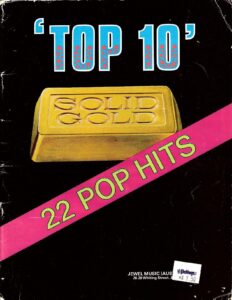 |
Top 10 22 Pop Hits Piano Vocal Guitar Chords |
| Top 10 Classical Favorites |
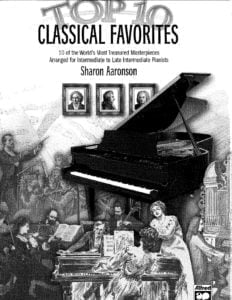 |
Top 10 Classical Favorites |
| Top Christian Hits Of 2019 2020 Piano Vocal Guitar 20 Powerful Songs |
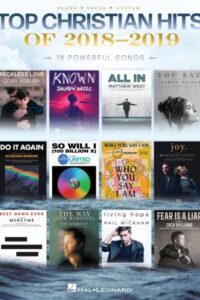 |
Top Christian Hits Of 2019 2020 Piano Vocal Guitar 20 Powerful Songs |
| Top Hits For Piano Solo 20 Great Songs |
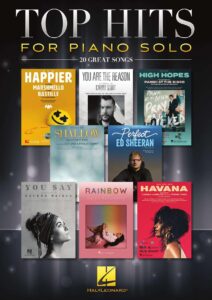 |
Top Hits For Piano Solo 20 Great Songs |
| Top Hits Of 2011 |
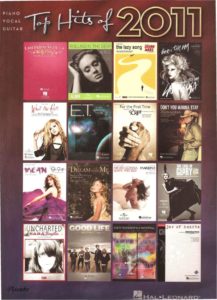 |
TOP HITS 2011 |
| Top Hits Of 2013 |
 |
Top Hits Of 2013 |
| Top Hits Of 2017 Sheet Music 18 great songs Piano Vocal Guitar |
 |
Top Hits Of 2017 Sheet Music 18 great songs Piano Vocal Guitar |
| Top Hits of 2018 Songbook – sheet music |
 |
Top Hits of 2018 Songbook – sheet music |
| Top Movie Hits SongBook |
 |
Top Movie Hits SongBook |
| Top Rock Volume 2 (Guitar) |
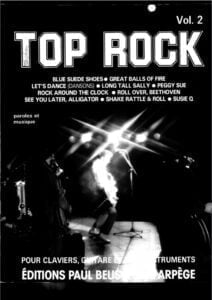 |
Top Rock songbook guitar |
| TOP TEN – N°1 |
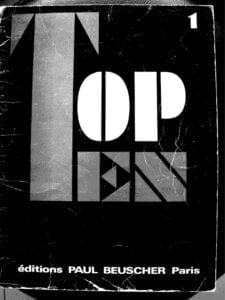 |
TOP TEN – N°1 |
| Top Ten – N°2 |
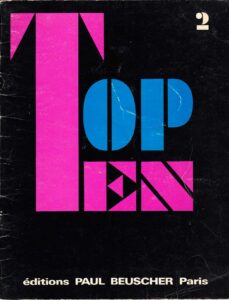 |
Top Ten – N°2 |
| Top Ten 40 (Guitar) |
 |
Top ten 40 guitar songbook |
| Top Ten 43 (Guitar) |
 |
Topp ten 43 guitar songbook |
| Top Ten Slow (Guitar) |
 |
Top Ten Slow (Guitar) |
| TOP TEN X3 (5) Guitar piano |
 |
TOP TEN X3 (5) Guitar piano |
| Toquinho – A Arte Brasilera de – sheet music songbook Guitar Tabs |
 |
Toquinho – A Arte Brasilera de – sheet music sogbook Guitar Tabs |
| Toquinho – Aquarela Guitar with TABs |
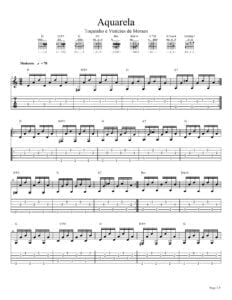 |
|
| Tori Amos – Silent All These Years | ||
| Tori Kelly Paper Hearts Piano |
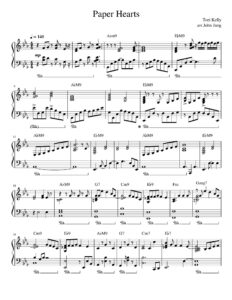 |
|
| Torna A Surriento Traditional Neapolitan Song By Ernesto De Curtis (Easy Piano Solo With Lyrics In English) |
 |
|
| Torna a Surriento.mscz | ||
| Toshifumi Hinata End Title (Tokyo Love Story) |
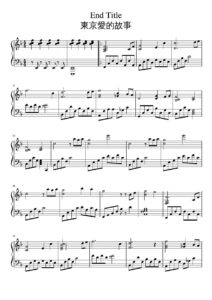 |
|
| Toshihiko Sahashi Fuuki Iinchou Hibari Kyoya | Toshihiko Sahashi Fuuki Iinchou Hibari Kyoya | |
| Toshihiko Sahashi Katekyo Hitman Reborn Hibari Kyoyas Theme | Toshihiko Sahashi Katekyo Hitman Reborn Hibari Kyoyas Theme | |
| Toshihiko Sahashi Tsuna Awakens Ost Katekyo Hitman Reborn |
 Toshihiko Sahashi Tsuna Awakens Ost Katekyo Hitman Reborn
Toshihiko Sahashi Tsuna Awakens Ost Katekyo Hitman Reborn |
|
| Total Guitar – The ultimate scale book |
 |
|
| Toto Guitar Anthology Authentic Guitar Tab |
 |
Toto Guitar Anthology Authentic |
| Toto – Africa (Easy Piano Solo Arr. Sheet Music) | Toto – Africa (Easy Piano Solo Arr. Sheet Music) | |
| Toto – Africa (Intermediate Piano Solo arr.) | Toto – Africa | |
| Toto – Childs Anthem (Intermediare Piano Solo arr.) | Toto – Childs Anthem (Intermediate Piano Solo arr) | |
| Toto – The Best Of Toto (Guitar, Kbds, Bass, Drum, Vocal) | Toto – The Best Of Toto (Guitar, Kbds, Bass, Drum, Vocal) | |
| Tournemire op. 33 Po me Mystique | ||
| TOY STORY – Randy Newman – You’ve Got A Friend In Me |
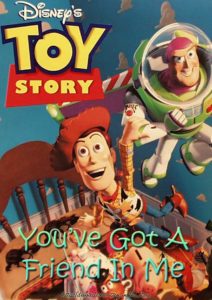 |
|
| Toy Story – When She Loved Me – Sarah Mclachlan | ||
| Toy Story Easy Piano Collection (Songbook) 8 Songs From The Popular Movies |
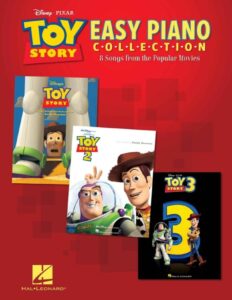 |
Toy Story Easy Piano Collection (Songbook) 8 Songs From The Popular Movies |
| Tracy Chapman – Complete Songbook |
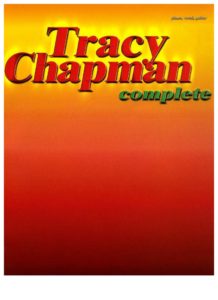 |
Tracy Chapman – Complete Songbook |
| Tracy Chapman – Tracy Chapman music songbook |
 |
Tracy Chapman – Tracy Chapman music songbook |
| Tracy Chapman Fast Car Sheet Music |
 |
|
| Traditional – Swing Low Sweet Charriot | Traditional – Swing Low Sweet Charriot | |
| Traditional Dona Nobis Pacem (Piano Solo Arr.) Give Us Peace Musescore File.mscz | ||
| Traditional English Carol – The First Noel | Traditional English Carol – The First Noel | |
| Traditional English Carol The First Noël (Piano Solo).mscz | ||
| Trailer Park The Musical Piano Vocal Score by David Nehls and Betsy Kelso |
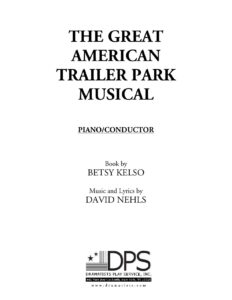 |
|
| Train – Drops Of Jupiter | ||
| Transparent Theme (Solo Piano) (Musescore File).mscz | ||
| Tratado de Armonia – Arnold Schoenberg (Spanish-Español) | Book Theory | |
| Travelin Soldier – Dixie Chicks | ||
| Trepat , Carles – Homenaje A Baden Powel |
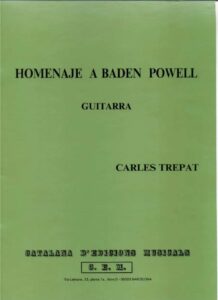 |
|
| Trepat, Carles Nana De Sevilla Partitura (Guitar, Guitarra) |
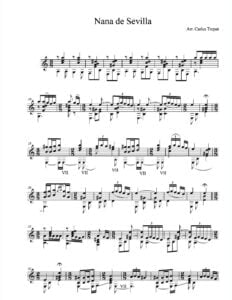 |
|
| Trinity – Pop and Rock Guitar Grade 1 Contemporary & Classic songs with TABs |
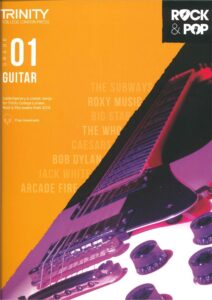 |
Trinity – Pop and Rock Guitar Grade 1 Contemporary & Classic songs |
| Trinity – Pop and Rock Guitar Grade 2 Contemporary & Classic songs with TABs |
 |
Trinity – Pop and Rock Guitar Grade 2 Contemporary & Classic songs |
| Trinity – Pop and Rock Guitar Grade 3 Contemporary & Classic songs with TABs |
 |
Trinity – Pop and Rock Guitar Grade 3 Contemporary & Classic songs |
| Trinity – Pop and Rock Guitar Grade 4 Contemporary & Classic songs with TABs |
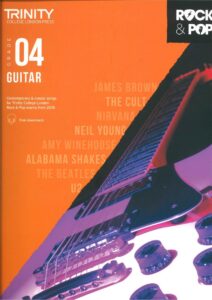 |
Trinity – Pop and Rock Guitar Grade 4 Contemporary & Classic songs |
| Trinity 2010-2015 Guitar Grade 3 Pieces & Exercises |
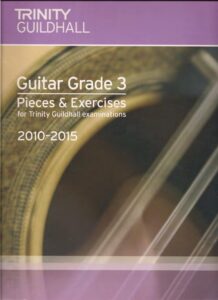 |
|
| Trinity Classical Guitar 2010-2015 Grade 07 |
 |
|
| Trinity Classical Guitar 2020-2023 Grade 01 |
 |
|
| Trinity Classical Guitar 2020-2023 Grade 02 |
 |
|
| Trinity Classical Guitar 2020-2023 Grade 03 |
 |
|
| Trinity Classical Guitar 2020-2023 Grade 04 |
 |
|
| Trinity Classical Guitar 2020-2023 Grade 05 |
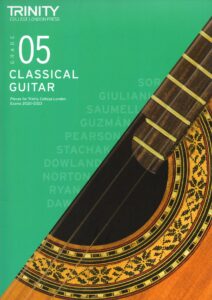 |
|
| Trinity Classical Guitar 2020-2023 Grade 06 |
 |
|
| Trinity Classical Guitar 2020-2023 Grade 08 |
 |
Creation and development

Final Fantasy VII was scored by the series’ main composer Nobuo Uematsu
Nobuo Uematsu composed the music of Final Fantasy VII in less than one year, matching the game’s development time, although he had taken two years to create the soundtrack for the previous title, Final Fantasy VI. Final Fantasy VII was the first game in the series to be developed for the PlayStation, and while the media capabilities of the console allowed for pre-recorded Linear PCM (often as Red Book audio tracks on the CD), it was decided to generate the music in real time on the console instead, using samples and note data. This decision has been credited as giving the soundtrack “a very distinctive mood and feel”, forming a strong association for listeners between the game and its soundtrack.
Uematsu had initially planned to use vocal performances for the game to take advantage of the console’s capabilities, but found that the advanced audio quality required in turn made the game have much longer loading times in each area. Uematsu decided that the quality was not worth the effects on gameplay, though after the release and seeing Suikoden II (1998, PlayStation), which had used higher-quality music instead, he reversed his stance for Final Fantasy VIII. There was a plan to use a “famous vocalist” for the ending theme to the game as a “theme song” for the game, but time constraints and thematic concerns, caused the idea to be dropped. Uematsu has stated, however, that the move into the “PlayStation era”, which allowed video game composers to use sounds recorded in the studio rather than from synthesizers, had “definitely been the biggest change” to video game music.
Uematsu’s approach to composing the game’s music was to treat it like a film soundtrack and compose songs that reflected the mood of the scenes rather than trying to make strong melodies to “define the game”, as he felt that approach would come across too strong when placed alongside the game’s new 3D visuals. As an example, he composed the track intended for the scene in the game where Aerith Gainsborough is killed to be “sad but beautiful”, rather than more overtly emotional, creating what he feels is a more understated feeling. Uematsu has additionally said that the soundtrack has a feel of “realism”, which also prevented him from using “exorbitant, crazy music”.
The first piece that Uematsu composed for the game was the opening theme; game director Yoshinori Kitase showed him the opening cinematic to the game and asked him to begin the project there. The track was well received in the company, which gave Uematsu “a sense that it was going to be a really good project”. He later stated in the liner notes for the soundtrack album that the music for Final Fantasy VII was his “greatest harvest” to date.
Final Fantasy VII was the first game in the series to include a track with digitized vocals, “One-Winged Angel”. The track has been called Uematsu’s “most recognizable contribution” to the music of the Final Fantasy series, though the composer did not expect it to gain such popularity. The piece, described as “a fanfare to impending doom”, is said to not “follow any normal genre rules” and has been termed “possibly the most innovative idea in the series’ musical history”.
Uematsu approached the piece, which accompanies the final battle of the game, in a different manner than previous “boss tracks”: as he felt that using his normal approach would cause unfavorable comparisons to his well-received Final Fantasy VI boss tracks, he instead tried to take a different approach. Inspired by The Rite of Spring by Igor Stravinsky to make a more “classical” track, and by rock and roll music from the late 1960s and early 1970s to make an orchestral track with a “destructive impact”, he spent two weeks composing short unconnected musical phrases, and then arranged them together into a song, an approach he has never used before or since.
The lyrics of “One-Winged Angel”, a Latin choral track that plays at the climax of the game, were taken from the medieval poetry that forms the basis of Carl Orff‘s Carmina Burana, specifically “Estuans Interius”, “O Fortuna“, “Veni, Veni, Venias” and “Ave Formosissima”. Uematsu has stated that the intro of “One-Winged Angel” is based on Jimi Hendrix‘s “Purple Haze“, that the piece revolves around the image of Sephiroth, and that despite the chorus and orchestra, he still thinks of it as a “rock piece”. He said in a 2005 interview that “One-Winged Angel” is his favorite tune from the soundtrack, and in 2004 that it was his favorite battle theme from any Final Fantasy game.
Final Fantasy VII Albums
Original Soundtrack
Final Fantasy VII Original Soundtrack is a soundtrack album containing musical tracks from the game, composed by Nobuo Uematsu and produced by Uematsu and Minoru Akao. It was originally released on February 10, 1997 through DigiCube and later reissued directly by Square Enix on May 10, 2004. The soundtrack spans 85 tracks over four discs and has a combined duration of 4:39:53. A limited edition was produced along with the original album, containing illustrated liner notes with several pictures of Uematsu’s workspace and personal effects, various cutscenes and in-game screenshots from the game, and a discography.
The soundtrack covers a wide variety of musical genres, including rock, techno, orchestral, and choral, although the soundtrack as a whole is primarily orchestral. While many of the tracks were intended as background music, reviewers noted the emotional intensity of several tracks, especially “Aerith’s Theme”, which plays during a moment described as “the most shocking moment in video games,” and has been described as the most memorable track from the album. The theme has become popular among fans, and has inspired various arrangements. Other notable tracks include “Main Theme of Final Fantasy VII”. Themes from this track play during several other tunes from the soundtrack, such as “Words Drowned by Fireworks”, to tie the soundtrack together.
The regular edition of the album reached No. 3 on the Japan Oricon charts, while the limited edition reached No. 19. Overall, the album sold 148,000 copies as of January 2010, with the limited edition selling a further 21,000. The album was well received by critics. Allmusic awarded Uematsu’s original soundtrack a five-star rating.
Ben Schweitzer of RPGFan claimed that “for the most part, it’s a diamond”, with his primary complaint being the quality of the MIDI sound. He found the tracks to be “beautiful” and said that “One-Winged Angel” was “possibly the most innovative idea in the series’ musical history”.
Patrick Gann of RPGFan concurred and found all of the soundtrack’s tunes to be “memorable” and the Original Soundtrack to be “very worth the purchase”. Philip of Square Enix Music Online, however, disliked the sound quality of the soundtrack and saw several tracks as “trivial”, though he did note that Uematsu “has a flair for strong, memorable” pieces. In 2006, IGN ranked the album as the best Final Fantasy soundtrack to date and cited the “gripping” character themes and “One-Winged Angel” in particular as contributing factors. They also named “One-Winged Angel” as the best piece of music from the entire Final Fantasy series.
The original CDs for both releases were only published in Japan and include only Japanese track names. The official English track names were later added to digital releases of the soundtrack.
